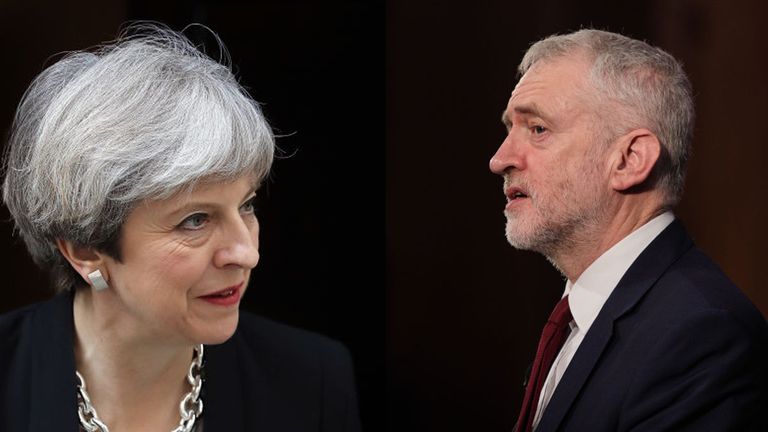Sky Views: Tide turns against smaller parties

Monday 29 May 2017 09:26, UK
Darren McCaffrey, Political Correspondent
This weekend in a Cumbrian curry house, the customers burst into an unprompted Happy Birthday sing-along.
The staff started taking pictures and asking for selfies.
Who was this star in our midst, spending his 47th birthday celebration with a bunch of journalists and locals?
Well it was Tim Farron, the affable, boundlessly enthusiastic Lib Dem leader.
"We'll definitely gain some seats," he assured me as we tucked into our rather spicy rogan josh.
And they may well do, but those advances are likely to be modest, nowhere near the doubling of their seat numbers as expected at the start of the campaign.
This election, like no other in a generation, has become a two-horse race.
The traditional third party, the Lib Dems, are not cutting through with their promise of a second referendum; having achieved Brexit, UKIP have all but collapsed; and even the SNP are under pressure.
And it's not so much a fight between Labour and the Conservatives, but one defined in a battle between Theresa May and Jeremy Corbyn.
This election, aside from everything else, may also destroy a generation of political theory about the fragmentation of our politics.
The theory goes that in 1955, 97% of the electorate backed Labour or the Conservatives.
By 1979 that had slipped to 74% and by 2010, 65%. Two years ago, it was 67%.
A significant downward trajectory, just as the calls for electoral reform grew louder.
It spoke of louder cultural changes, the breakdown of community and institutions, the rise of individualism.
But 2017 has said: "Hold on a second!"
An ORB poll this weekend gave Labour and the Conservatives a combined vote share of 82%.
An average of all four polls over the bank holiday had the combined vote at over 80%.
So why the marked change in this election?
Well, for the first time in a generation there is a clear dividing line - actually a gulf - between the two parties; there is no fight for the centre ground here.
People are being offered a real and radically different choice.
And given the country is about to enter its most fraught and politically complex negotiations ever, leadership is a top priority for voters.
Theresa May has repeatedly claimed that this election is the most important of her lifetime (well, she is hoping to remain Prime Minister).
But with the choice being her or Jeremy Corbyn, she has a point.
Britain in five years' time will be a very different place depending on whether it is Mrs May or Mr Corbyn in 10 Downing Street on 9 June.
So tune in tonight, and get out and vote!
Sky Views is a series of comment pieces by Paste BN editors and correspondents, published every morning.
Previously on Sky Views: Adam Boulton - Roger Moore was Bond with manners




